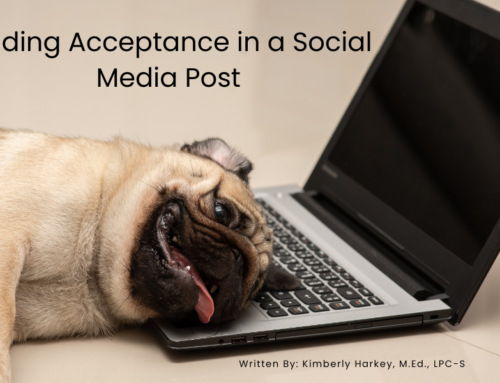Wondering If You Should See a Therapist?
Have you ever wondered if you should see a therapist? Jessica Eiseman, MS, LPC-S, NCC answers some of the most common thoughts and questions related seeing a therapist.
What are some signs it’s time to seek therapy?
- When things you’ve been using to cope, no longer serve you.
- When the way you are feeling or your actions or behaviors are beginning to interfere with your daily life and/or interpersonal relationships.
- When you need an outside perspective-therapists are trained to listen and notice patterns in behaviors in a non-bias, non-judgmental way. Therapists aren’t integrated into your life in the same way that others may be, such as friends or family.
- When you have experienced something traumatic. We as therapists have heard it all and do not react in the same way that others in your life may.
What are some disadvantages of not seeing a therapist?
- Not seeing a therapist means not having an outside perspective. While friends and family are great to talk to and process difficulties or life stressors with like I said previously, they can be biased. They love and care for you and want the best for you, but sometimes that is not always what is best for us.
- Getting too much into our head and not seeing a way out. Someone once told me, “The smarter you are, the better you can be at connecting erroneous dots.” Our minds are made to try to find solutions and try to make sense of things. But when we experience things such as depression or anxiety or a traumatic event, our filter or lense can be off and we aren’t seeing things as rationally or reasonably.
- Doing the same thing, expecting the same result. Therapists can provide tools and coping skills that you may be missing out on!
How do you know a therapist is a good fit?
I think it is very wise to “shop around” for a therapist. A lot of therapists will give you 10 or 15 minute consultations for free. Take advantage of those and ask some questions, see how you feel about what they say. Think about what it is you are looking for:
Do you want someone who is just there to listen?
Do you need a space to be yourself?
Do you need certain tools or coping skills?
Do you have a particular issue that you want a therapist who specializes in your issue?
Here’s a secret too, if it’s not working we want you to tell us! Sometimes that helps us as therapists to change things in our session and we can work through it together. If not, then we will gladly give you some great referrals. Remember therapy is for you and what you want and need to get out of it!
Why are people generally hesitant to seek therapy?
There is unfortunately still a major stigma to coming to therapy. People still have a lot of myths about what therapy is and is not. Culturally at times, that can be a barrier in seeking therapy. Some individuals are told only their religion can help them. Some families have been taught not to discuss personal issues with others not in the family. And some of us have been taught to suck it up or “pull yourself up by your boot straps.”
Seeking help may be seen as a sign of weakness. And I think especially in Western culture we can be very prideful in our independence and our ability to do things on our own and not rely on others. Or our life experiences have made us feel this way, so we don’t think talking to someone will help. Lastly, trust is a major one. You don’t know us. Therapists are strangers at first and you come in and are supposed to divulge very personal things to this person. Individuals can be taught that when they tell someone something personal, their secrets are not kept safe, or could be used against them in some way.
What are some ways to overcome these roadblocks?
The more information people have that helps to reduce stigma. Therapists are on social media now more than ever, posting Instagram posts, making short video clips, etc. This makes us more human and someone can get a sense before even calling. I think too the millennial generation will and are making huge strides in recognizing the importance of their mental health and so they talk about it in the same way they would talk about anything else in their lives. Normalizing it makes it less scary and helps to decrease the stigma, helping others to realize that mental health and physical health are equal. Oh and let’s not forget online therapy! You don’t even have to leave your home if you don’t want to!




